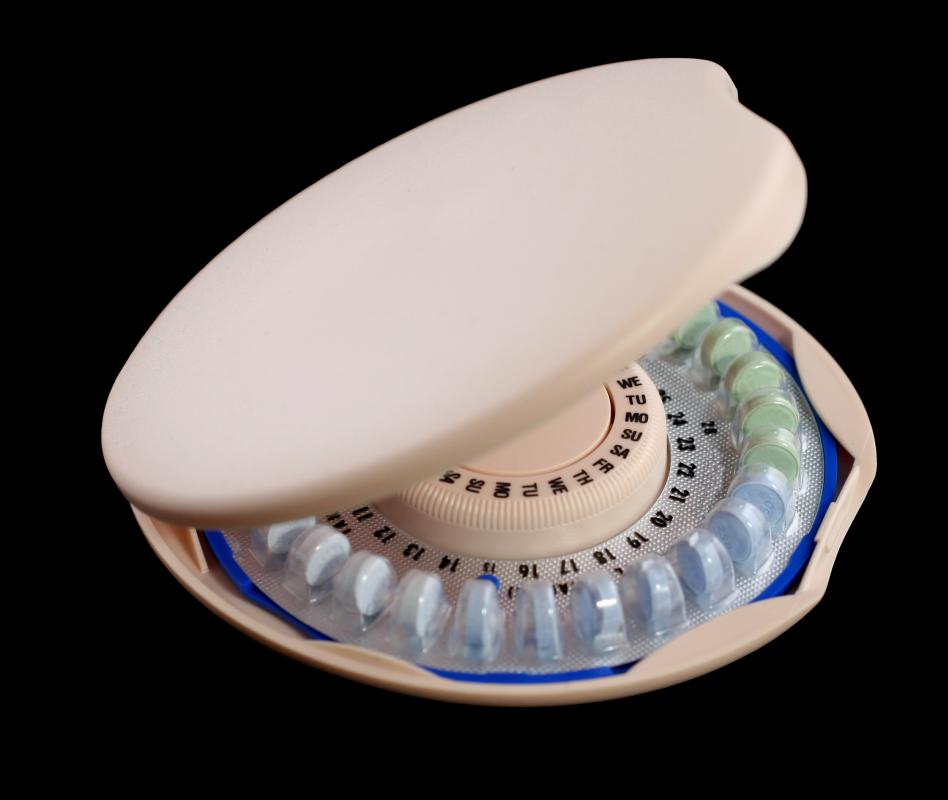At WiseGEEK, we're committed to delivering accurate, trustworthy information. Our expert-authored content is rigorously fact-checked and sourced from credible authorities. Discover how we uphold the highest standards in providing you with reliable knowledge.
What are the Most Common Ovulation Problems?
Ovulation problems are one of the most common reasons why women have trouble getting pregnant. They don’t just affect fertility, but can also create other problems depending on type, or they might signify underlying medical issues. Some of the common problems affecting ovulation include polycystic ovarian syndrome (PCOS), which might cause irregular or infrequent ovulation. Other conditions that may affect ovarian function include low levels of thyroid hormone or high levels of prolactin.
PCOS often leads to very irregular menstrual cycles and tends to be caused by the body producing higher than normal levels of androgens. These are often called “male” hormones, though women produce them in small amounts. When present in higher amounts, androgens affect ability for women to ovulate in a predictable fashion, which means periods may be irregular or sometimes even completely absent. There are a few medications that may treat this. Birth control pills may help regulate cycles or alternately, taking fertility medications may assist those women attempting to achieve pregnancy.

Irregular periods resulting from ovulation problems may be caused by conditions other than PCOS, resulting in period irregularity including low amounts of thyroid hormone or high amounts of prolactin. Both can delay or arrest the normal process of ovulation and make periods unpredictable, sometimes causing women to have far fewer periods per year, or with hyperthyroidism (high amounts of thyroid hormones) more frequent ones.

Sometimes certain behaviors may result in ovulation problems. Women who are anorexic or bulimic may cease to ovulate and have absolutely no periods until they are able to resume healthier eating patterns. Athletes may also experience discontinuation of periods. Should they be trying to get pregnant, they may need to scale back on heavy exercise until ovulation/periods resume a normal schedule.

As women age they have a greater likelihood of ovarian failure. Women carry all “their eggs in one basket” so to speak, when it comes to ovulation. Over time, women begin to run out of eggs a few years before total menopause begins. Due to the fact that doctors cannot create new eggs, this is not a condition that can be fixed. Women desiring pregnancy may still achieve it by using donor eggs if their own aren’t viable.

Another common cause of ovulation problems is temporary for most women. Sometimes when ovulation occurs, the follicle from which it erupts fails to release the egg. This is called a follicular cyst and most women get a few of these in their lifetimes. They may slightly change a cycle, but the process of ovulating typically begins again the next month on the opposite ovary. Follicular cysts very often recede within a few months and women may not even be aware they’ve had one. They may cause problems with ovulation for a single cycle, and should the cyst remain in place it might create future problems, but most don’t and won’t permanently affect ovulation.

Many ovulation problems do have specific treatments. If women are having trouble getting pregnant or if they have irregular or non-existent cycles, consulting a gynecologist may prove very helpful. Women should also note that perhaps the most common of ovulation problems come from those times in life when stress occurs. This is enough to delay ovulation briefly or to cause a few irregular cycles. Once stress lessens, ovulation may return to more regular patterns.
AS FEATURED ON:
AS FEATURED ON:
















Discuss this Article
Post your comments